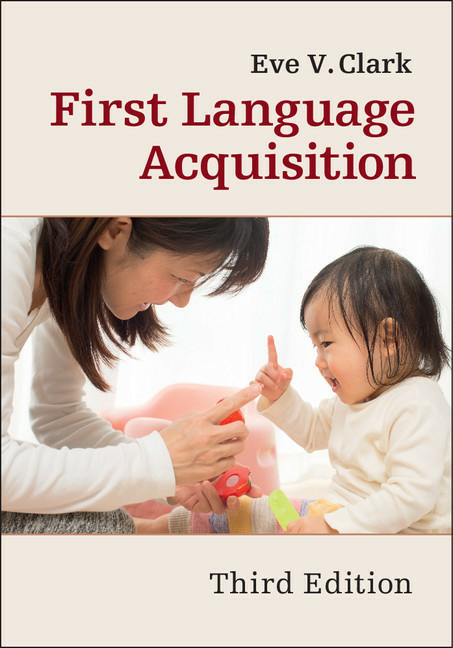
First Language Acquisition
Cambridge University Press (Verlag)
978-1-316-50760-5 (ISBN)
How do young children learn language? When does this process start? What does language acquisition involve? Children are exposed to language from birth, surrounded by knowledgeable speakers who offer feedback and provide extensive practice every day. Through conversation and joint activities, children master the language being used around them. This fully revised third edition of Eve V. Clark's bestselling textbook offers comprehensive coverage of language acquisition, from a baby's first sounds to a child's increasing skill in negotiating, explaining and entertaining with language. This book, drawing together the most recent findings in the field, and illustrated with examples from a wide range of experimental and observational studies, including the author's own diary observations, presents an essential and comprehensive guide to first language acquisition. It will be fascinating reading for students of linguistics, developmental psychology and cognitive science.
Eve V. Clark is a Member of the Netherlands Academy of Sciences (KNAW), a Fellow of the Association for Psychological Science, and a Fellow of the American Association for the Advancement of Science. Her books include Psychology and Language (with H. H. Clark), The Ontogenesis of Meaning, The Acquisition of Romance, The Lexicon in Acquisition, and Constructions in Acquisition (with B. F. Kelly). Her research has involved both observational and experimental studies aimed at discovering what language children understand and what they produce at different stages in development.
1. Acquiring language
Part I. Getting Started:
2. In conversation with children;
3. Starting on language: perception;
4. Early words;
5. Sounds in words: production;
6. Words and meanings;
Part II. Constructions and Meanings:
7. First combinations, first constructions;
8. Modulating word meanings;
9. Adding complexity within clauses;
10. Combining clauses: more complex constructions;
11. Constructing words;
Part III. Using Language:
12. Honing conversational skills;
13. Doing things with language;
14. Two languages at a time;
Part IV. Process in Acquisition:
15. Specialization for language;
16. Acquisition and change.
| Zusatzinfo | 87 b/w Tables; 11 Halftones; 4 Line drawings |
|---|---|
| Verlagsort | Cambridge |
| Sprache | englisch |
| Maße | 175 x 249 mm |
| Gewicht | 1130 g |
| Themenwelt | Geisteswissenschaften ► Psychologie ► Entwicklungspsychologie |
| Geisteswissenschaften ► Sprach- / Literaturwissenschaft ► Sprachwissenschaft | |
| ISBN-10 | 1-316-50760-2 / 1316507602 |
| ISBN-13 | 978-1-316-50760-5 / 9781316507605 |
| Zustand | Neuware |
| Haben Sie eine Frage zum Produkt? |
aus dem Bereich


